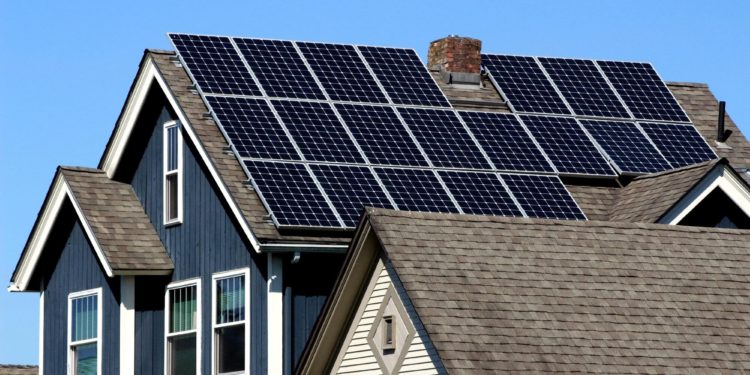Solar panels are designed to capture sunlight and convert it into usable energy. They work silently, with no moving parts, and require less maintenance than many other home systems. But “less” doesn’t mean “none.” Over time, dust, pollen, bird droppings, and environmental debris build up on their surfaces. This layer may seem harmless, but it can have a surprisingly large impact on energy output.
The Science Behind Clean Panels
Solar panels work best when every cell receives maximum sunlight. Even a small amount of surface shading can block energy absorption, forcing the entire panel to produce less. Industry studies have shown that panels covered with dirt or debris can lose anywhere from 5% to 25% of their efficiency, depending on location and climate conditions.
That drop in efficiency means your system isn’t generating the energy it should—leading to higher reliance on grid power and, ultimately, higher energy bills.
The Hidden Impact of Environmental Factors
Not all dirt is created equal. In dry, dusty areas, fine particles accumulate quickly, especially during windy conditions. In coastal regions, salt spray can form a sticky film that’s harder to remove. In rural or agricultural zones, pollen and organic residues can create a thin, grimy layer.
And then there are the unexpected culprits: bird droppings, which don’t just block sunlight but can also be acidic enough to damage protective coatings if left untreated.
Seasonal Cleaning for Peak Performance
Like many exterior maintenance tasks, solar panel cleaning benefits from seasonal attention.
- Spring: Removes pollen and debris from winter storms.
- Summer: Clears dust and insect residue from dry, hot months.
- Autumn: Gets rid of falling leaves, tree sap, and airborne dirt.
- Winter: Addresses early buildup before snow and ice take hold.
Consistent seasonal cleaning ensures that your panels remain at their optimal efficiency year-round.
Safety Comes First
Solar panels are typically installed on rooftops, which makes cleaning them a task that requires caution. Slippery surfaces, steep angles, and electrical components all add layers of risk. Professional solar panel cleaning services use the right tools and safety procedures to access panels without damage or danger. They also know how to clean without scratching the glass or harming the anti-reflective coating.
Protecting Your Investment
Installing solar panels is a significant investment in both sustainability and long-term savings. Regular cleaning is a way to protect that investment. Just as you wouldn’t let grime accumulate on your car’s windshield, you shouldn’t let it linger on panels that need maximum sunlight exposure to function at their best.
A neglected panel may still generate electricity, but over time, efficiency loss adds up. Over years, this can translate into hundreds—or even thousands—of dollars in lost savings.
Cleaning Methods That Work
The best solar panel cleaning approaches focus on safety, efficiency, and eco-friendliness. Pure water cleaning systems, which use deionized water to prevent streaks and spots, are a preferred method. Soft brushes or microfiber tools are often used to lift dirt without scratching the surface. Harsh chemicals or abrasive tools are avoided, as they can cause permanent damage.
How Location Influences Cleaning Frequency
The frequency of cleaning depends heavily on the environment:
- Urban areas: Pollution and dust may require more frequent cleaning.
- Desert climates: Wind-blown sand can accumulate quickly.
- Near trees: Sap, leaves, and bird activity can cause stubborn buildup.
- Industrial regions: Airborne particulates may settle faster on panels.
By evaluating your home’s location and conditions, you can create a tailored cleaning schedule.
Eco-Friendly Benefits of Clean Panels
Keeping panels clean isn’t just good for energy output—it’s also good for the planet. The more efficiently your panels work, the less you rely on fossil-fuel-generated electricity. In this way, regular solar panel cleaning amplifies the environmental benefits of your renewable energy system, helping you reduce your carbon footprint even further.
A Proactive Approach Pays Off
Many homeowners wait until they notice a drop in energy production before cleaning their panels. By then, efficiency has already been compromised. A proactive schedule ensures consistent performance and eliminates the guesswork of when to clean.
Treat cleaning as preventive care—just like gutter maintenance or exterior house washing—and you’ll enjoy better returns on your solar investment.
Final Thoughts
Solar panels are a long-term commitment to energy savings and environmental stewardship. But for them to perform at their best, they need a little care in return. Routine solar panel cleaning keeps your system operating at peak efficiency, reduces long-term wear, and safeguards the return on your investment.
By working with experienced professionals and following a regular maintenance plan, you ensure that your solar panels aren’t just working—they’re working at their absolute best.









































































